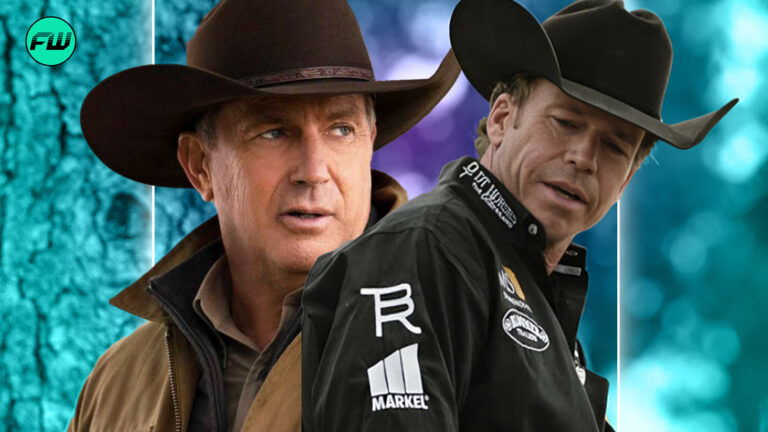When Yellowstone first premiered, it seemed destined to become a television empire unlike anything before. The sprawling landscapes, the gritty family drama, and the unforgettable performances gave it a sense of authenticity that resonated with millions of viewers. Yet, as the years have passed and behind-the-scenes tensions spilled into public view, many fans have begun to question the foundation on which Taylor Sheridan built his success. The controversy surrounding Kevin Costner’s abrupt departure from the series was initially viewed as the core of the show’s unraveling, but when you peel back the layers, it becomes clear that Sheridan’s creative approach carried flaws long before Costner walked away. Sheridan has often been praised for his uncompromising vision, his ability to deliver intense storytelling, and his refusal to bend to network pressures. However, that same determination can also translate into inflexibility, and in television — an art form that demands collaboration — such rigidity can create cracks that grow wider over time. Even before the fallout with Costner, whispers circulated about Sheridan’s grueling schedules, his heavy-handed control over scripts, and his insistence on being the primary voice behind every major creative decision. While this approach worked in the early seasons, giving Yellowstone a sharp edge, it also created a bottleneck where the storytelling could only move at Sheridan’s pace. By refusing to share creative authority, he inadvertently set the stage for eventual burnout, both for himself and his collaborators. Costner’s situation simply highlighted an issue that had been quietly building — a series that had grown too reliant on one man’s vision without a sustainable system to carry it forward. Beyond the production struggles, Sheridan’s writing has also drawn criticism for leaning too heavily on repetition. Characters often circle the same conflicts without meaningful resolution, leaving fans with the sense that the narrative has stalled. While the spectacle of Montana ranch life and cowboy politics initially dazzled audiences, the cracks began to show once the novelty wore off. Sheridan’s inability to evolve the story beyond constant battles for land, loyalty, and legacy made the show feel like it was running in place. This isn’t to say he lacks talent; rather, his brilliance often shines brightest in short bursts — powerful scenes, memorable dialogue, or self-contained projects like Hell or High Water. But when stretched across multiple seasons of television, the weaknesses become glaring. Long before Costner’s exit, critics pointed out that Yellowstone had lost some of its depth, replacing character-driven storytelling with endless melodrama. The fallout with Costner, while dramatic, was simply the breaking point that forced audiences to confront Sheridan’s limitations. His sprawling universe of spin-offs also illustrates the problem. Instead of focusing on refining and deepening Yellowstone, Sheridan expanded quickly into prequels and side stories, creating what some fans view as quantity over quality. While 1883 and 1923 received praise, they also revealed a pattern: Sheridan is at his best when telling finite stories with a clear beginning and end. The never-ending sprawl of Yellowstone seems to drain his storytelling energy, leaving the flagship series to stumble while the spin-offs shine. Ultimately, the reason Sheridan failed goes beyond Kevin Costner. Costner’s exit was symbolic, a visible sign of deeper creative fractures. The truth is that Sheridan’s refusal to adapt, his overextension across multiple projects, and his insistence on maintaining singular control laid the groundwork for the show’s decline long before the headlines. In retrospect, Costner’s departure feels less like the cause and more like the inevitable result of a system destined to strain under the weight of one man’s ambition. Sheridan’s genius is undeniable, but genius without balance often leads to collapse. The fans who once flocked to Yellowstone in awe now watch with mixed feelings — admiration for what it achieved, but disappointment in what it has become. And perhaps that is the hardest truth to accept: Taylor Sheridan didn’t fail because of Kevin Costner. He failed because he never built a creative structure strong enough to survive beyond his own control. The upset around Yellowstone is simply the story of an empire that grew too fast, burned too bright, and ultimately stumbled under its own weight. As Sheridan moves forward, he will need to decide whether to keep clinging to total control or embrace collaboration, evolution, and humility — the very qualities that could have prevented this downfall in the first place. Fans, meanwhile, are left to reflect on what Yellowstone might have been if its creator had learned that lesson earlier, long before Costner’s dramatic exit brought everything crashing into the open.